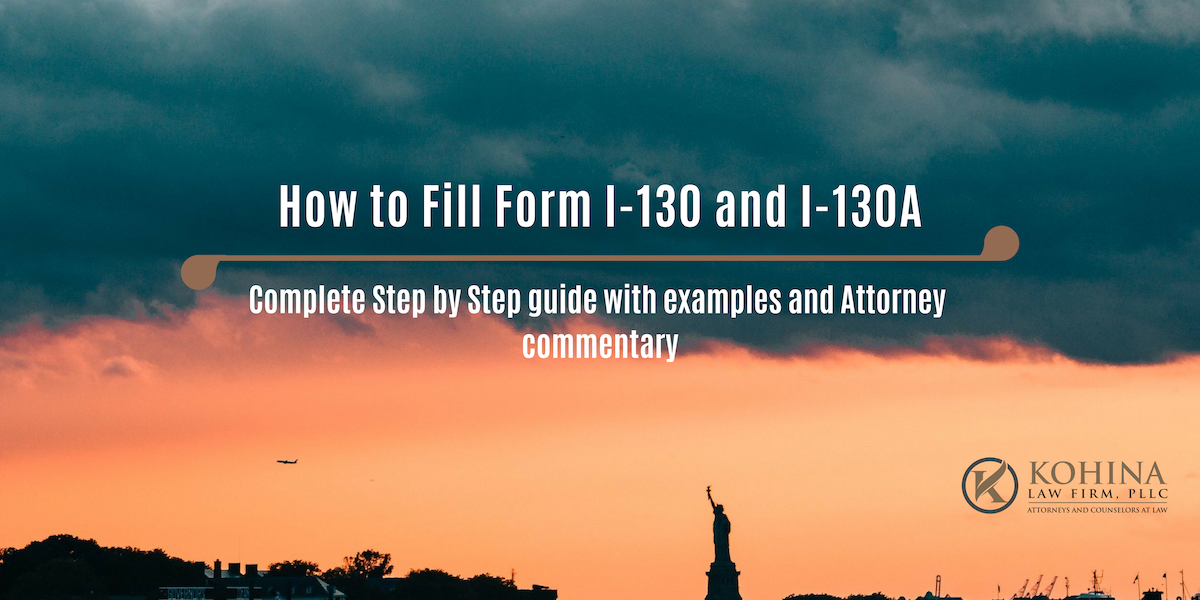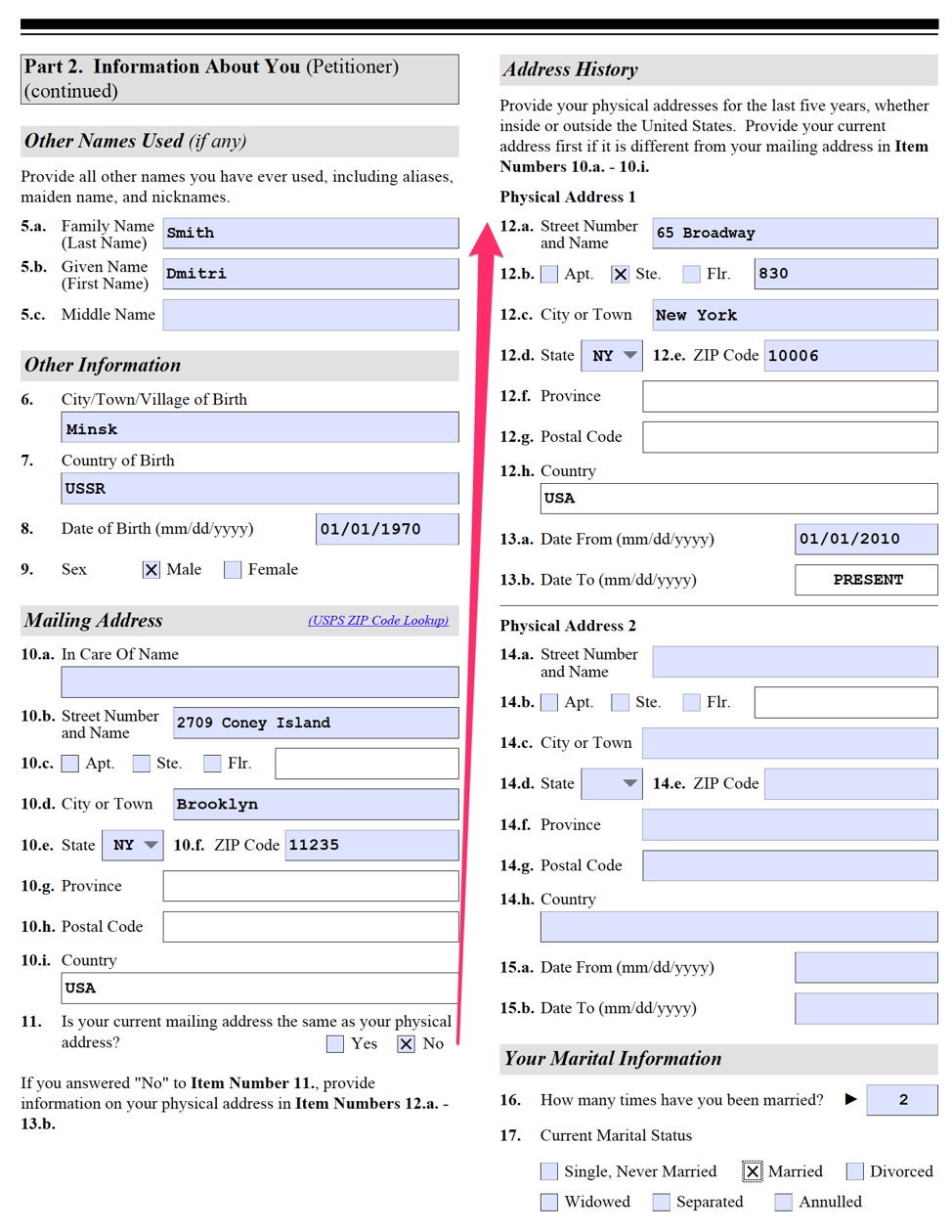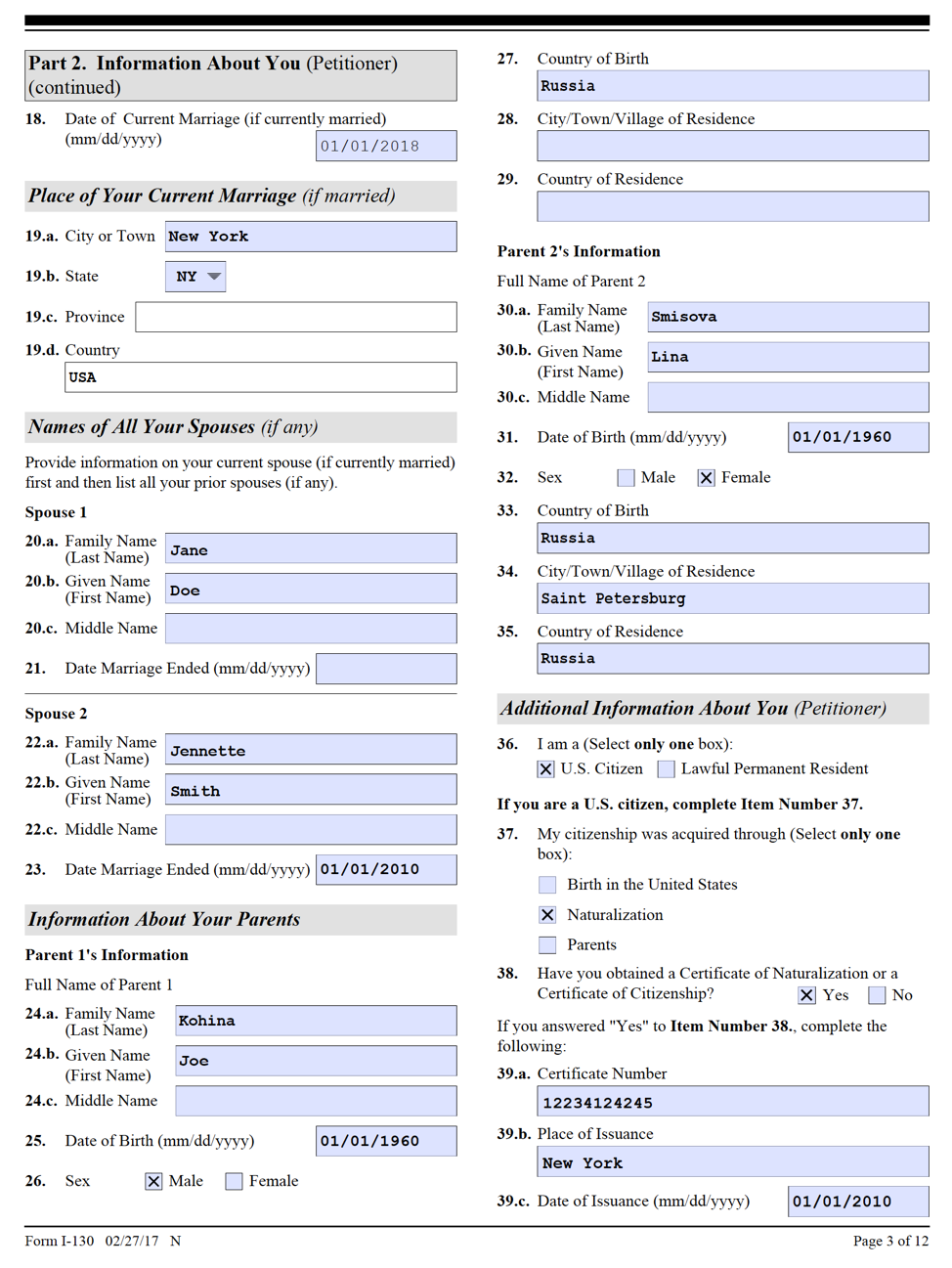PART 2. INFORMATION ABOUT YOU
The petition must be filed by a U.S. citizen or Legal Permanent Resident and the questions in this part are asking about the petitioner, not the foreign national relative beneficiary.
The “You” in Part 2 refers to the U.S. citizen or permanent resident who is petitioning for an alien relative. The petitioner must make sure that all biographical information matches all valid biographical documents or explain any documentary discrepancies.
Information about prior marriages is particularly relevant to a petition for a spouse because if either spouse was previously married and cannot prove that the old marriage has been terminated, the new marriage cannot be legally valid and cannot justify the petition. It is advisable to include extra identity documents, especially if the petitioners’ name is a common one in order to avoid false hits on a security check.
Question 1-3 A U.S. born petitioner should not have an “Alien number”. A Legal Permanent Resident will have one. A lawful permanent resident’s A# can be found on his or her lawful permanent resident card.
All petitioners must include Social Security number.
Question 4 — YOUR FULL NAME:
This should be the petitioner’s full legal name. If the petitioner has changed his or her legal name because of marriage, adoption, or other reasons, he or she must include copies of the legal documentation of the name change, such as a marriage certificate, an adoption decree, naturalization certificate, or a court order.
Question 5: OTHER NAMES USED (if any)
List all the names previously used particularly maiden names or marital names. Should you need more room use the space provided in Part 9.
Question 6-15 Place of Birth, Mailing address and Address History.
This part requires the applicant to list all addresses for the last five years. This requires complete addresses (street and building numbers, city, state or province, country) and dates of residence at that address.
Key point to remember:
* only list residences for the last five years. Do not list older residences (except last foreign residence).
* Note that you can put two addresses lived in at the same time. For example, a husband lives in another city while attending school but also commuting to see his wife. USCIS may use this information identify if a couple is living together and determine whether to ask for additional bona fides evidence.
* Keep in mind that background checks may disclose other addresses from arrest records, driver’s licenses, or previous immigration filings.
If more space is needed to list addresses use the additional space provided in Part 9. See the end of this guide for an example of additional information in Part 9.
Question 16-19 —Your Marital Information
In question 16 list the total number of times you were married including the current marriage. For example, if you were previously married once and are currently married you would type 2.
For the marital status section, “single” refers to a petitioner who has never been married. If a petitioner has two previous marriages where one was terminated by divorce and the other by death, the petitioner can check both “widowed” and “divorced” and provide an explanation in Part 9.
Questions 20–23— Names of All Your Spouses (if Any)
Names of all prior husbands or wives and the dates the marriages ended must be included. Additional space in Part 9 should be used if necessary. Legal Permanent Resident petitioners who obtained permanent residence through a prior marriage may be subject to certain restrictions in petitioning for a current spouse and should consult an immigration attorney.
Question 24-36: Enter the required information about your parents. If a parent has passed away you may leave the field for current city/country of residence blank or type N/A.
Question 36-39
If you (the petitioner) acquired U.S. citizenship through parents and never received a certificate of citizenship in own name, a copy of an unexpired U.S. passport should be provided. If no passport is available, a copy of Form FS-240, Report of Birth Abroad of a Citizen of the United States issued by a U.S. embassy or consulate should be submitted.










Thank you. it really helps. could you please guide which documents are required to file for mother. form i130 for Mother?
Thank You Kohinalaw. This cleared some of my confusions.